在本次討論性別、權力與癌症關係的分享會上,三位專家Prof. Winnie SO、Dr. Erica Liebermann和Prof. Nirmala Bhoo-Pathy分別就女性在癌症領域面臨的挑戰、性別偏見問題及其經濟影響進行了深入探討。
Prof. Winnie SO強調了性別偏見對女性在癌症研究、實踐和政策制定中進步的阻礙,並提出了性別平等在癌症治療中的重要性。她通過分析全球癌症負擔數據,指出衛生保健系統中性別平等的必要性,並提出了一系列改善女性在腫瘤學領域職業發展和工作環境的建議。
Dr. Erica Liebermann討論了癌症研究領導中的性別差距,強調了女性在研究中的貢獻及其在知識生產中的重要性。她通過數據揭示了女性在學術出版、研究資金和領導職位中的不平等,並呼籲採取包容性的研究實踐和政策,以促進女性在腫瘤學方面的領導力。
Prof. Nirmala Bhoo-Pathy則從經濟角度分析了性別和社會經濟地位如何影響女性的財務結果,尤其是在癌症的前提下。她通過對東南亞八個國家的案例研究,展示了女性在癌症診斷後面臨的經濟壓力,並指出中低收入國家的女性因癌症而產生的災難性支出更高。她強調了需要一個性別平等的衛生融資系統來解決女性在癌症診斷後的財務脆弱性。
總體而言,本次分享會凸顯了性別平等在癌症研究和治療中的重要性,並強調瞭解決性別偏見和經濟不平等的必要性,以改善女性在癌症領域的職業發展和經濟狀況。
Written by: AO, ZhuoYue
本次講座以性別、權力與癌症為題,三位教授分別分享了女性在癌症學以及腫瘤學領導層中面臨的挑戰、性別偏見以及女性面對癌症時的經濟困境。
Prof. Winnie 強調了確保癌症治療領域性別平等的重要性,但在醫療領域領導層中女性領導依然普遍缺失,性別偏見和歧視極大阻礙了醫療領域女性的職業發展,並導致她們逐漸脫離領導道路。與此同時,在女性工作者佔比較高的護理領域中,女性也同樣面臨著工作地位及薪酬較低、工作負擔重且缺乏支持的情況。她提出應當推進包括建立公平薪酬標準、推進性別平等工作環境建設等一系列旨在改善女性在腫瘤學領域的職業發展與工作環境的建議。
Dr. Erica Liebermann介紹了癌症研究中持續存在的性別差異問題,表明女性在癌症研究、實驗、學術出版以及資金支持等多方面都處於被歧視的不利地位,並強調了在癌症護理中以女性為主的護士群體的貢獻也同樣被低估。她呼籲應當採取更多更具有包容性的研究實驗及政策以促進女性在腫瘤學領域的領導力。
Prof. Nirmala Bhoo-Pathy討論了患癌背景下,性別與社會經濟地位對女性的財務狀況的影響。通過對八個東盟成員國家的交叉性研究,她與研究小組發現,由於生育角色、教育程度低、個人收入較少等原因,確診癌症會加劇女性的經濟脆弱性,並且由於全民醫保的缺失以及社會性別角色等非醫療原因,中低收入國家中確診癌症後女性的支出更高。她呼籲應當建立一個性別平等的衛生融資系以解決患癌女性面臨的財務問題。
通過本次講座,我們呼籲性別平等在癌症和醫療等多領域都能落實開來,解決這些性別偏見與不平等問題刻不容緩。
Written by: CHEN, Haoyan
在本次講座中,來自《柳葉刀》婦女、權利與癌症委員會的三位專家分別就女性在癌症研究中的領導作用、全球腫瘤學領域領導層的性別分佈情況,以及在癌症治療費用負擔中存在的性別不平等問題,分享了她們的研究成果和觀點。
Winnie SO教授分析了腫瘤學領域的性別不平等現象。通過UiCC數據,強調腫瘤學領導層的性別分佈在亞洲、歐洲、非洲存在不均衡的情況,她還描述了阻礙衛生行業女性領導職位晉升的困境,並從性別分佈改革、女性個人職業發展、相關保障機制等方面提出了改善腫瘤學領域女性困境的建議,強調將性別平等納入每一項與癌症相關的政策和指南的重要性,以更好地滿足女性的不同需求。
Erica Liebermann教授介紹了目前在癌症研究領導層中的性別差距及其影響。她指出了腫瘤學領域中女性學者在籌措資金、研究中擔任的角色、和個人晉升方面的不利地位,並指出對於護士在癌症研究中的作用有所低估,分析了改進這一系列現狀的必要性,並呼籲確保女性平等獲得腫瘤學研究資源、領導權和資助機會。
Nirmala Bhoo-Pathy教授以多元女性主義的視角討論了性別和經濟對癌症的影響。根據ASEAN的8個成員國進行的以患者和家庭為導向的研究,教授探討了研究對象的支出模式以及災難性支出兩個方面,並通過數據說明由於缺乏社會保障以及文化因素和性別角色的影響,女性在癌症方面的支出比例高於男性,表明了癌症對女性經濟負擔的影響,並強調有必要儘快建立促進性別平等的衛生籌資系統,以及解決女性面臨的財務脆弱的相關政策。
綜上所述,本次講座強調瞭解決性別不平等問題對於提升癌症治療、腫瘤學研究以及社會政策制定的重要性,為今後的相關工作提供有效的建議和參考。
Written by: LI, Yimeng
In this seminar, three speakers provided insights into the undervaluing of women’s participation in cancer-related research and healthcare leadership.
Professor Winnie resent both practical and statistical evidence on the challenges of women leadership, including how gender affects cancer risk exposure, interactions with the healthcare system, and the particular dilemmas women face as health professionals, advocates, and caregivers. Three questions about the gender composition of global oncology leadership were raised and data on the global burden of cancer were shared, highlighting the importance of healthcare systems in providing effective cancer control strategies.
Professor Erica Lieberman, with more academically focus. She highlighted the gender gap in research leadership, including the fact that women’s contributions to study design and experimentation are often underestimated, and that they publish less research in high-impact journals and award less research funding. Besides, the leadership roles of women in clinical trials and nursing are discussed and how they affects the gender ratio of trial participants and cancer intervention processes.
Professor Nirmala shared how gender and socio-economic status affect financial outcomes following a cancer diagnosis. By analysing nearly 10,000 newly diagnosed cancer patients in South East Asian countries, it was found that women are more likely to incur catastrophic expenditures in low and middle income countries. The study highlighted the impact on women of the lack of universal health coverage, reliance on traditional and complementary medicine, non-medical costs such as transport and care, and limited financial resources and support mechanisms available. The session called for gender-responsive health financing systems to address the particular financial vulnerabilities faced by women.
In shut nut, this symposium highlights the importance of gender equality in cancer research and care, and offers some strategies and recommendations to address gender disparities in oncology pragmatically. Advocated by professors in agreement, effective actions can be taken through promoting female representation in oncology associated fields and ensuring equitable access to research resources, leadership and economic opportunities.
Written by: NI, Cheng


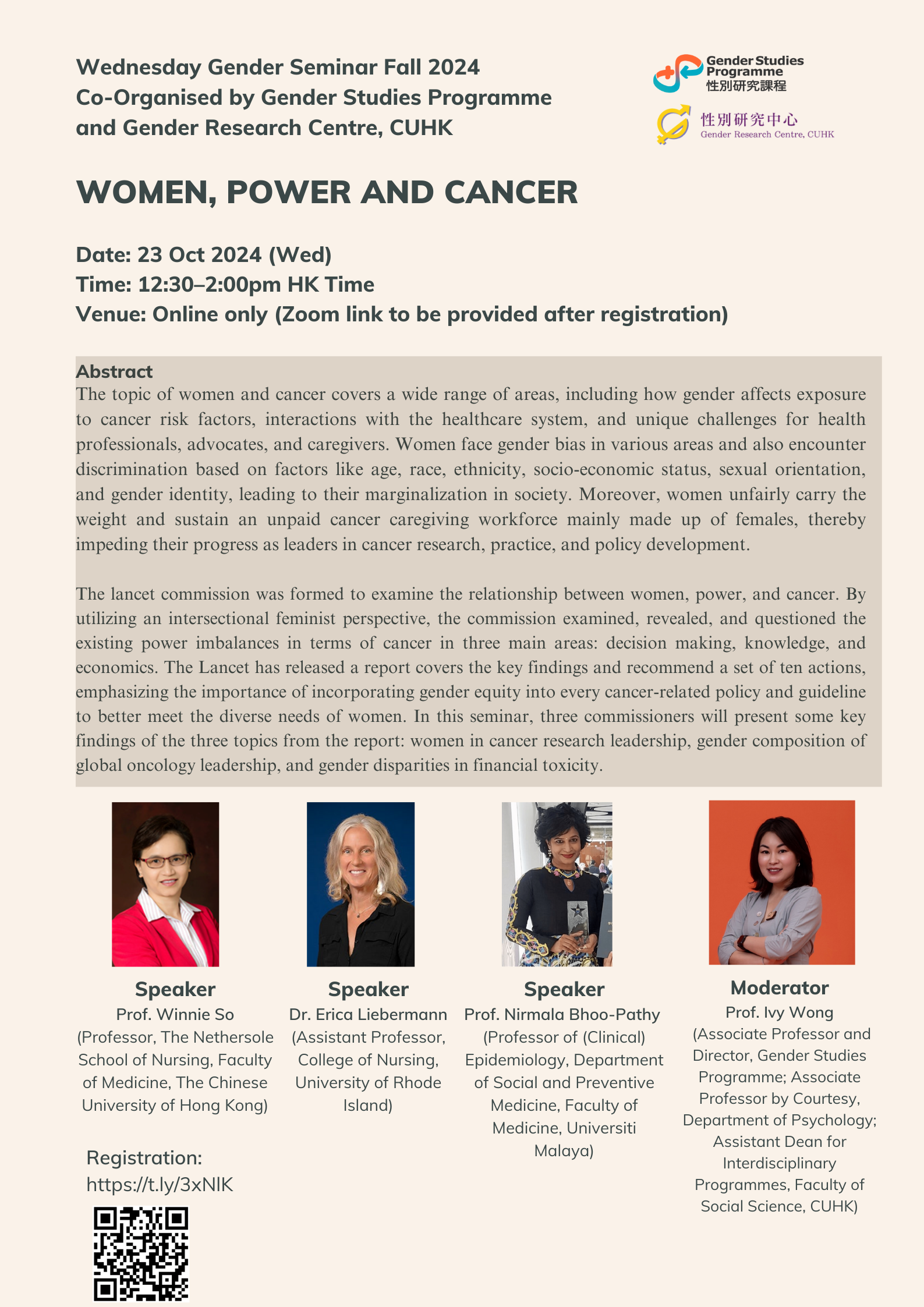
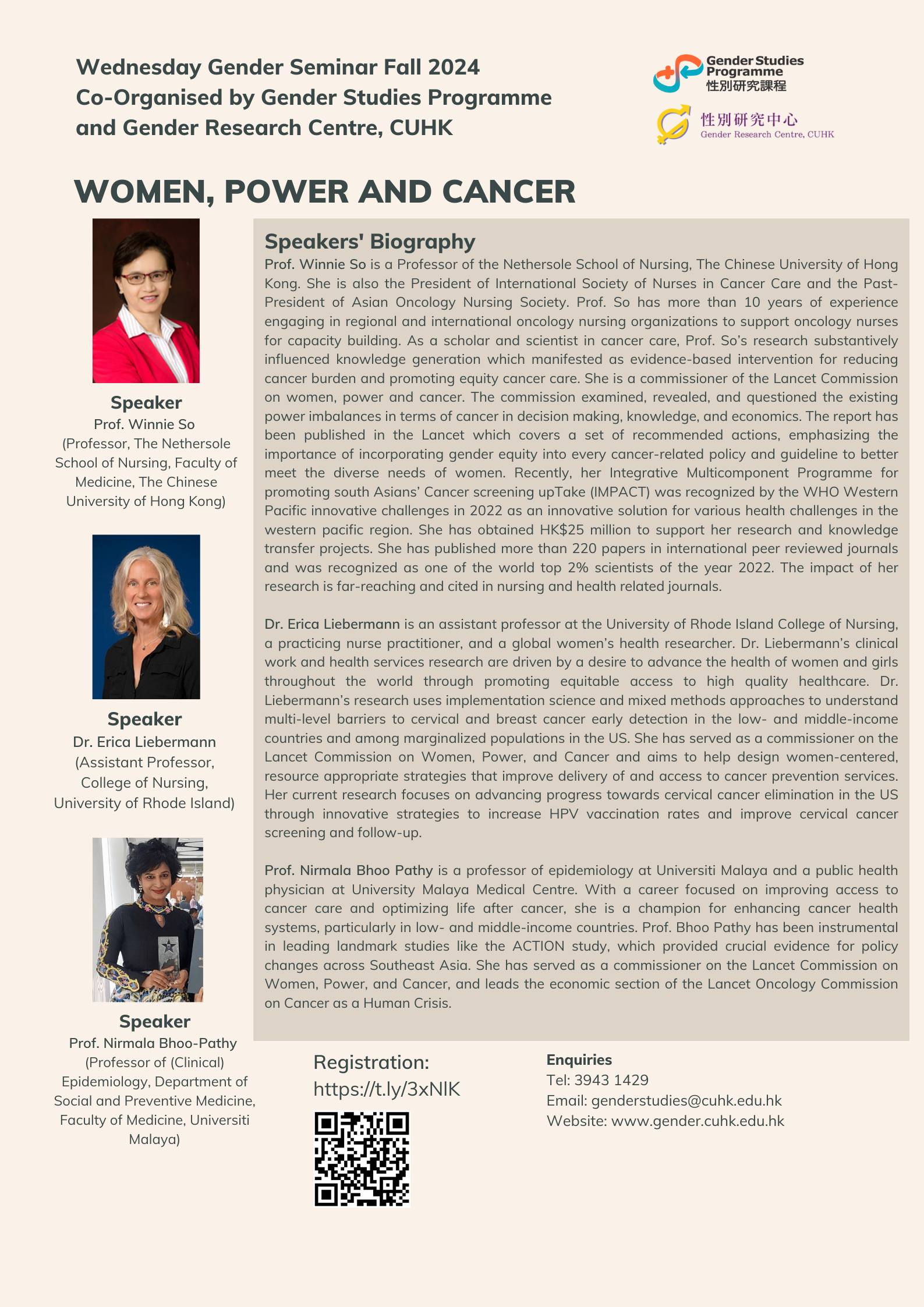
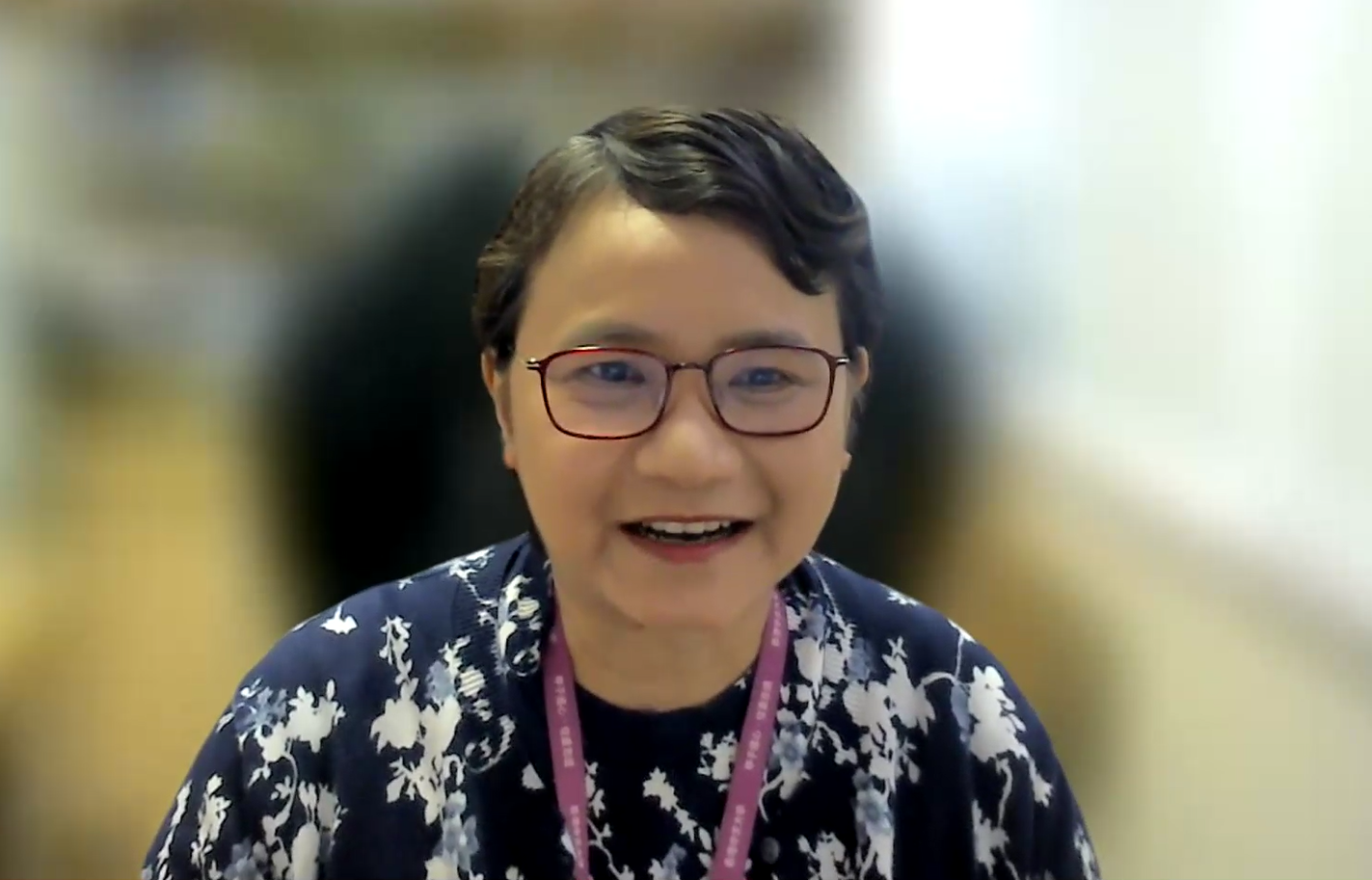
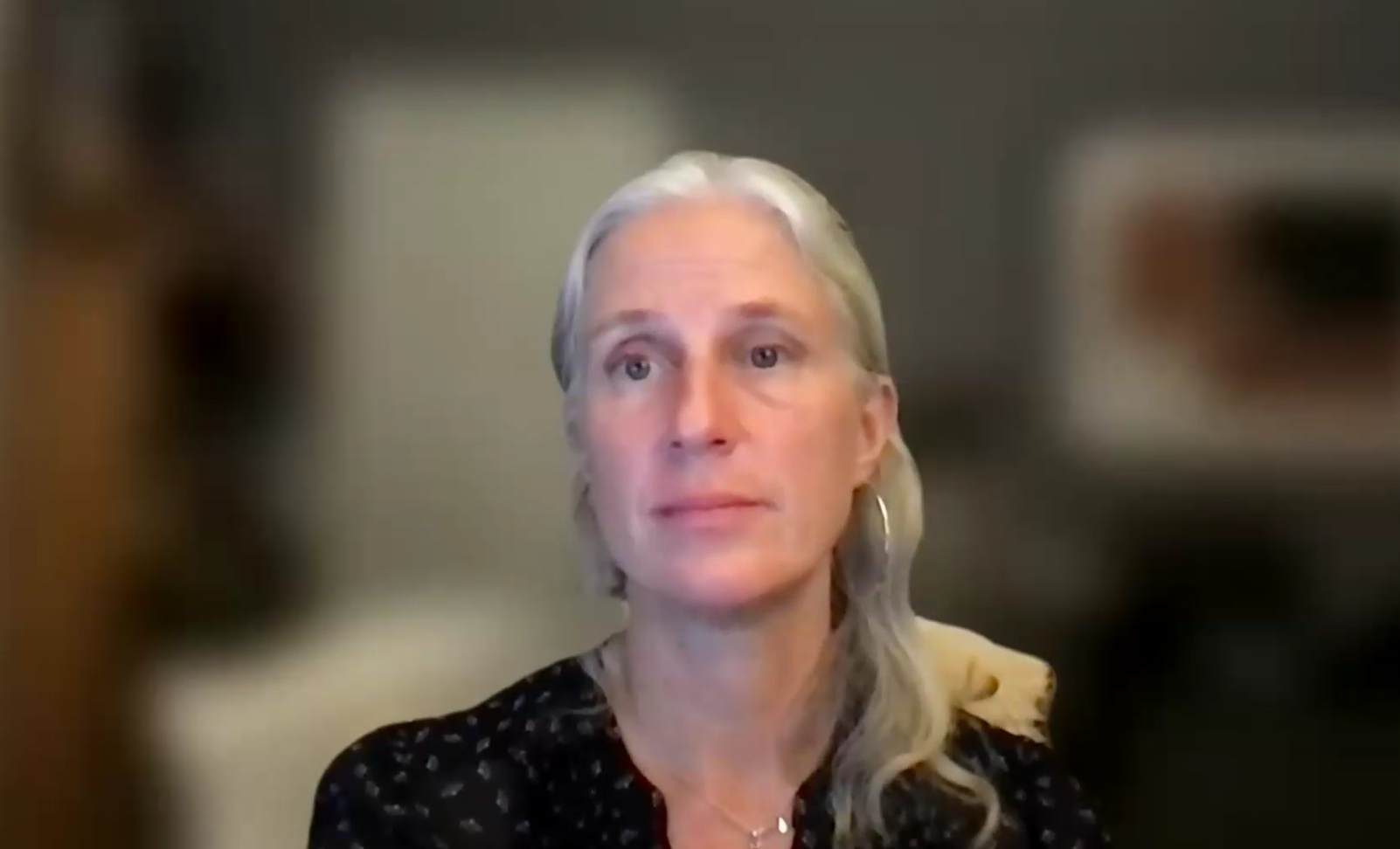
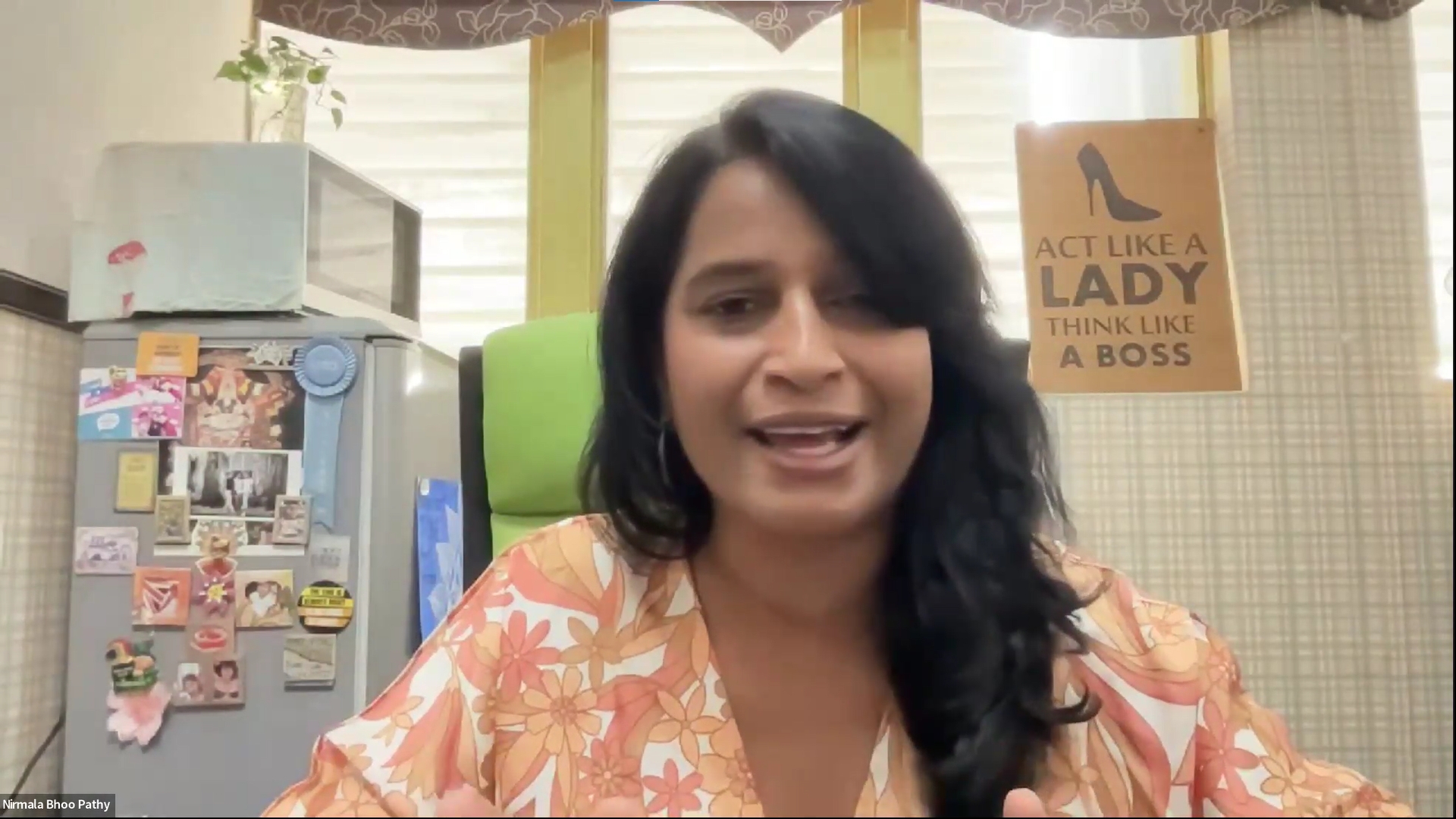
A
A
A
Contact Us